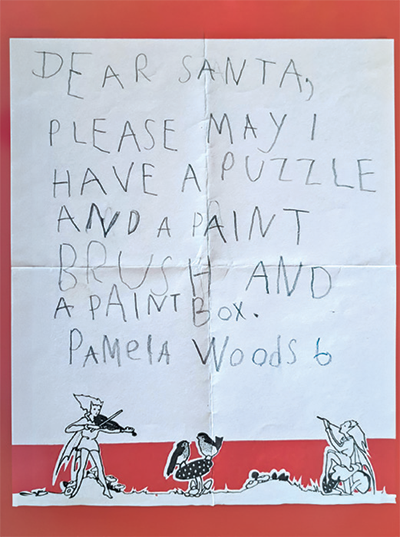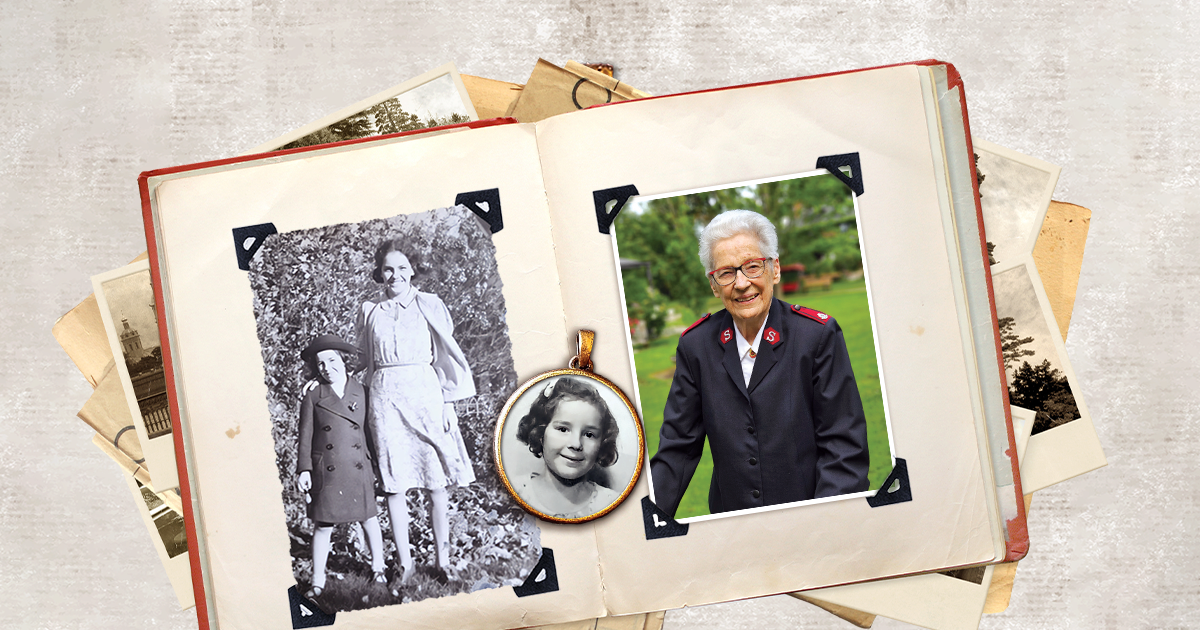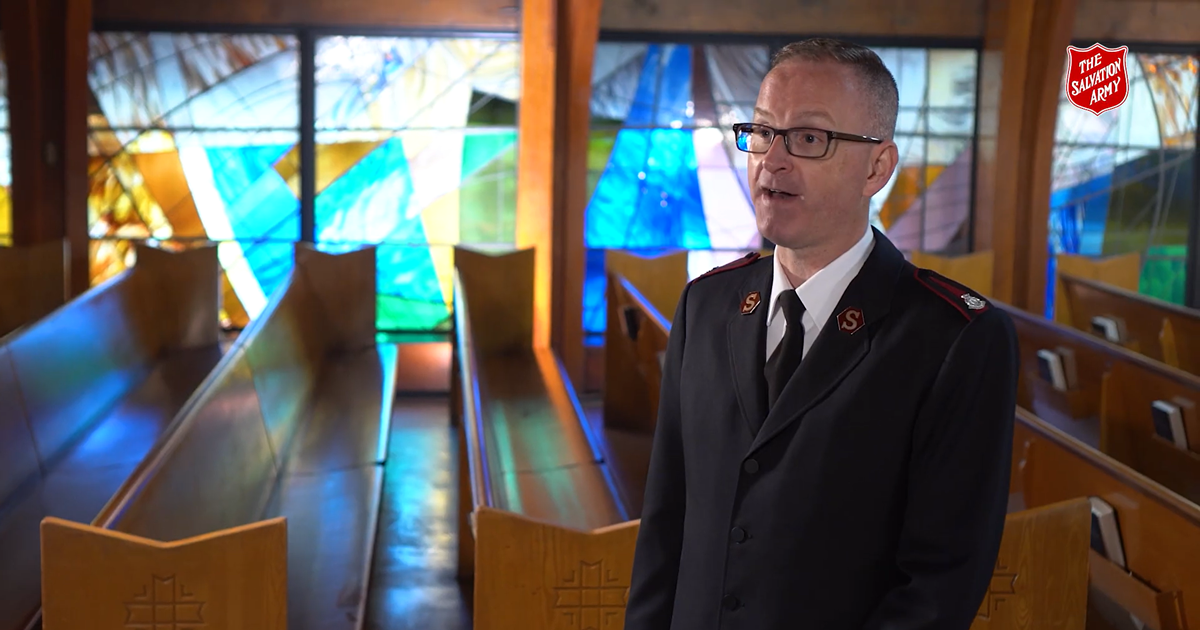At the height of the Battle of Britain in 1940, the British government made the difficult decision to evacuate thousands of children from the embattled war zone, some to rural areas, others to the relative safety of North America.
The American managing director of the Kodak plant in Harrow, England, took a personal interest in the plan. His idea was to send the children of his workers to stay with families of American employees at the parent company in Rochester, New York. The first ship, the Duchess of Atholl, set sail in August 1940 with a group of 140 children who became known as Kodakids.
“My time as a Kodakid really was a broadening experience that made me the Salvation Army pastor I became, and I am grateful.” MAJOR PAM WOODS
War and Peace and Hopscotch
Six-year-old Pam Woods was on this ship with her older sister, Olive, 12. Their stepfather worked for Kodak in Harrow.
The ship took the kids to Montreal and then via train to Rochester.
“I don’t remember much about the ocean voyage,” says Major Pam, now a retired Salvation Army pastor. “The sailors did their best to keep us young ones occupied. My sister probably was much more aware of what was going on, but the rest of us on a ship in the middle of the Atlantic were having fun!
“The funny thing is, I can’t remember even us getting on a train to go to the United States,” Major Pam continues. “I remember arriving at a school and from there, we were sent to our foster parents, but I don’t even remember the journey on the train, so it can’t have been anything unusual. Of course, I was used to train travel anyways.”
Once in Rochester, the children’s guardianship was signed over to Kodak and the firm took on any medical expenses, plus two social workers monitored the family situations throughout their stay there.
Due to various circumstances, Major Pam ended up staying with three different families during her time there.
Her first experience was not a happy one.
“I had a nice room but there was no love there,” she says.
Relocated by the social workers, who had been tipped off by Major Pam’s mother back in England, the young girl’s fortunes started to look up.
“She must have read between the lines of my sister’s letters home,” Major Pam says, recalling that she was more fortunate with the other two families who took her in. “I immediately knew I was loved.
“On the day that the war was declared over, we kids were playing hopscotch on the street,” Major Pam continues. “Someone walked by and told us the news—and we continued playing!”

“Just Stand Up”
Once peace was declared, Kodak lost no time in repatriating the children. Within a month of VE-Day on May 8, 1945, Major Pam and her fellow Kodakids were setting sail back to England.
“I just wish there was some way that I could say to the sailors how much we really appreciated how they looked after us and made sure we were happy on the voyage,” she says.
Once home, Major Pam had to get used to a school system that was different from the one she had studied in for five years. And she had to come to grips with the “strange church” her parents worshipped at.
But she did, and soon became an official member of The Salvation Army.
After faithfully attending church, Major Pam became convinced that she needed to give her life to God. But how? She was petrified to go up to the mercy seat, the simple wooden bench where people confess their sins and ask for God’s pardon, in front of everyone.
“At that moment, a pastor sat in the seat next to me and spoke to me,” Major Pam recalls. “She never once said I had to go to the mercy seat. All she said was, ‘If this is how you feel, just stand up.’ Others were standing in that way and that’s what I did. And at that moment, I knew something really wonderful had happened in me.”
A Life of Service
Following her sister back overseas, this time to Canada, Major Pam attended North Toronto Citadel and became a pastor, with appointments across Canada, including seven years as territorial Guide director.
When asked how being a Kodakid affected her life, Major Pam replies, “The ability to be adaptable, I would say was the main thing. You couldn’t think of yourself as being the centre of the universe; you had to adapt to what other people were doing, what they liked to do. And I don’t mean that as a negative thing.
“My time as a Kodakid really was a broadening experience. There are people who are so self-centred, so wrapped up in themselves. It’s tragic when I see that in so many other people.
“But it’s the ability to fit in and get to know people and try to work along with them, learn from them and perhaps help them, that made me the Salvation Army pastor I became, and I am grateful.”
This story is from:










Major Pam you have had way more influence in my life than you will ever know. Although I knew you were sent to North America during the war, it was very interesting to read the details. It was good to read that not all child relocations were negative. Trust you are keeping well !